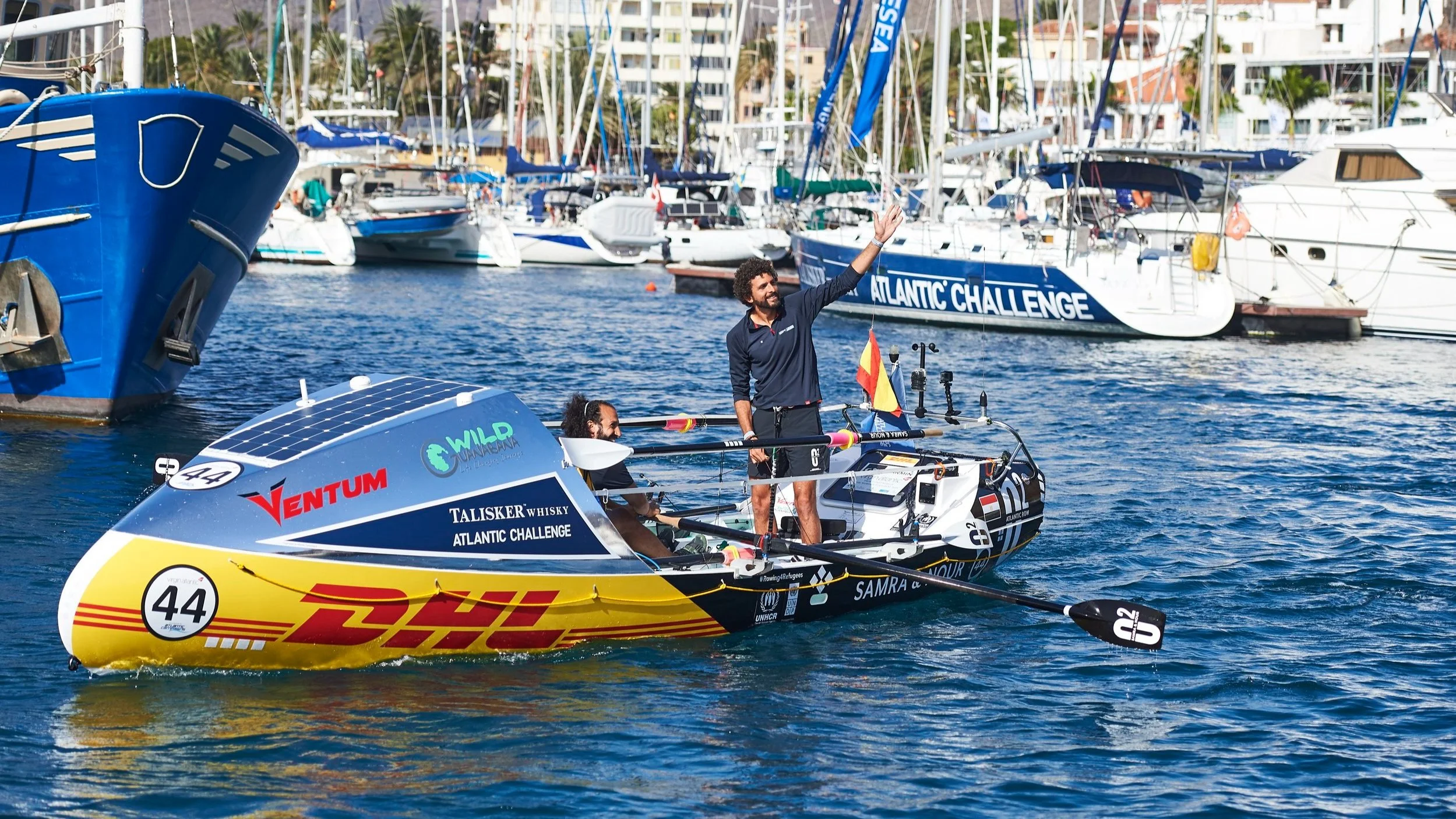Beyond the Raging Sea
Marco Antonio Orsini’s documentary following two Egyptian athletes as they attempt to row 3,000 miles across the Atlantic fails to find an effective treatment.
It was a surprise to realise that the director of this film, Marco Antonio Orsini, was also responsible back in 2014 for the documentary Gray Matters, a film which studied the work of the artist Eileen Gray. That film came across as a confident, ably-judged work but Beyond the Raging Sea for all its good intentions never seems to function effectively as a film. One reason for this is the limited footage available covering the dramatic events central to the story being told, but it's also the case that Orsini’s approach is such that he seems to make matters worse.
Beyond the Raging Sea is concerned with what happened to two Egyptians, Omar Samra and Omar Nour in December 2017 when they took to sea in a bid to compete in an open-ocean rowing race. Since the route to be taken covered the 3,000 miles between the Canary Islands and Antigua, the endeavour was always going to be adventurous but in the event their story turned out to be a saga of survivorship. As subject-matter this is not entirely without parallels to the hazardous climb undertaken in Peru in 1985 by Joe Simpson and Simon Yates which became the subject of Kevin Macdonald’s classic documentary Touching the Void. Furthermore, Orsini opts to have the two Omars tell what happened and what they felt at the time direct to camera in exactly the same way that Simpson and Yates did for Macdonald. But there the similarities end: Macdonald also had actors on hand to act out what was being described thus creating a truly cinematic balance between words and images but here there is no such element in play. The way in which Beyond the Raging Sea has been put together is less satisfying by far.
Although neither Samra nor Nour had any maritime experience, the latter was a noted mountaineer (he had been the first Egyptian to climb Everest) and Nour was a professional triathlete so taking on an Atlantic crossing in a rowing boat was something new but not too obviously beyond the bounds of what they might achieve. However, their motivation was in fact linked to the idea of turning their endeavour into something that could be used to publicise concern for refugees who all too often find themselves compelled to undertake risky sea crossings. These details do emerge in the film but, instead of being set out as part of a background study of the two individuals incorporating references to their families and to their aims in life, one is given an opening segment that is anything but smooth. Indeed, it plays like a trailer for the film as it dashes from one scene to another and offers comments from people we scarcely know. Something clearer and more detailed was needed to draw us in effectively.
Nor is the film any more satisfying once the narrative gets going. We do get to know Nikki Holter who managed the races on behalf of Atlantic Campaigns but others who contribute although named are not always defined in terms of their relationships even if in many cases we take them to be family members. But the essential point is that the limited record of what happened at sea leaves one with a work which is akin to an illustrated lecture, one in which what the two Omars say is what counts because the images inserted are strictly subsidiary to that. As though eager to disguise these limitations, Orsini occasionally adds a few effects on the soundtrack to fit in with what is being described and even incorporates some visual flourishes absurdly superimposed over the image as one or other of the Omars addresses us.
Late on Omar Samra makes the point that what happened to the two of them when at sea is at heart completely different from the situation experienced by refugees. Nevertheless, Beyond the Raging Sea has been made to some extent under the patronage of the UN refugee agency or so I have been told and surprisingly its closing section suddenly switches to tales of refugees not seen earlier. Their comments are indeed touching but they don't emerge naturally from what has been unfolding up to that point. Nevertheless, my main complaint here is that the film fails to work as good cinema. There may, of course, be some whose interest in the experience undergone by the two Omars is so intense that they will not be concerned with how it is presented given that both men speak openly and that the contribution of Captain Fahd Talkhan whose ship would have a major role to play does add to the impact as the tale reaches its climax. But I repeat: even if what we get here might not be a perfect fit for radio, it would fulfil expectations far more readily had it been presented as an illustrated talk to be given in person by Omar Samra and Omar Nour.
MANSEL STIMPSON
Featuring Omar Samra, Omar Nour, Nikki Holter, Nani Saleh, Fahd Talkhan, Diaa Nour, Fatima Salem, Alix Salem, Muhammad Salem, Leanda Cave, Theodoros Alexellis, Louay Alzouki, Mohammed Alhassan, Brendan Woodhouse.
Dir Marco Antonio Orsini, Pro Lizzy Lambley, Hassan Mahfouz and Marco Antonio Orsini, Screenplay Marco Antonio Orsini and Frederick L. Greene, Ph Ahmed Gabr, Georgos Kokkbalis, Michael Kushner, Shirley Schumacher and Steve Brooke Smith, Ed Dionysios Xenos and Vincent Cattaneo, Music George Acogny and Alan Derian.
Film-Clinic/Mojo Entertainment LLC/Polaris Productions Ltd./Queen Production-Munro Film Services Ltd.
70 mins. USA. 2019. UK Rel: 19 April 2024. US Rel: 26 April 2024. Cert. PG.


